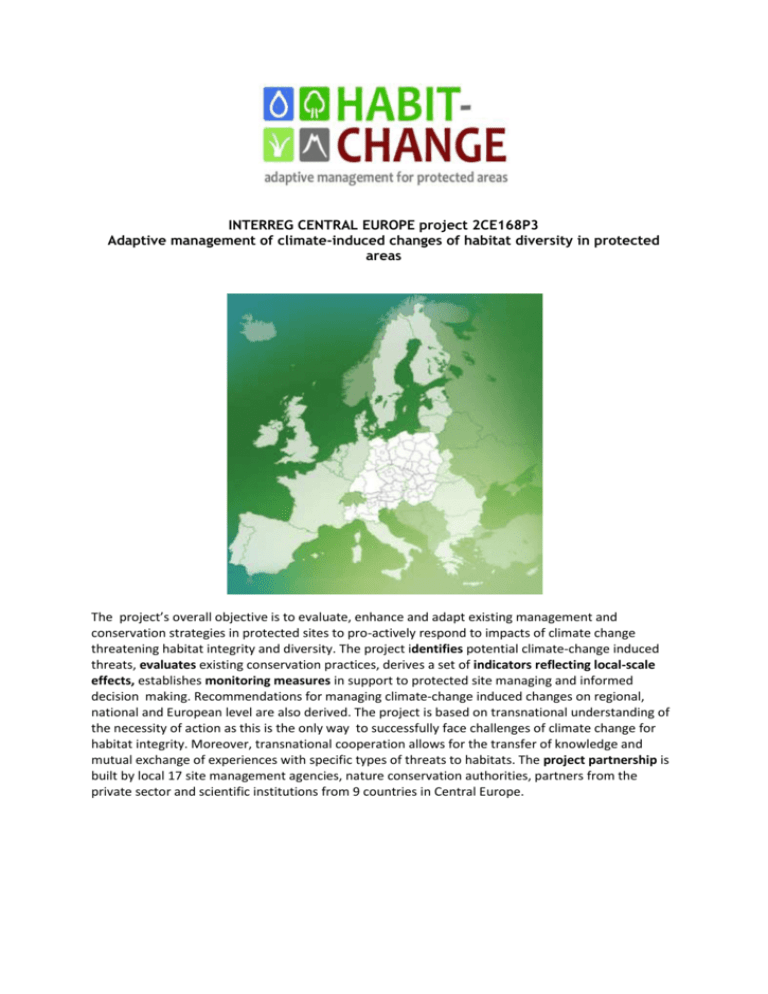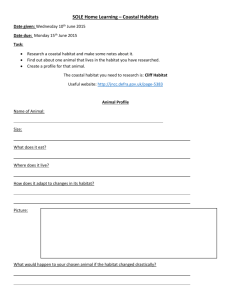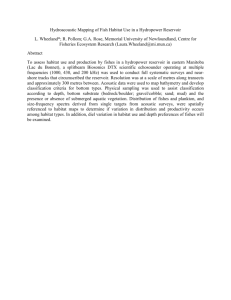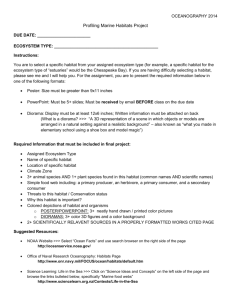INTERREG CENTRAL EUROPE project 2CE168P3 Adaptive
advertisement

INTERREG CENTRAL EUROPE project 2CE168P3 Adaptive management of climate-induced changes of habitat diversity in protected areas The project’s overall objective is to evaluate, enhance and adapt existing management and conservation strategies in protected sites to pro-actively respond to impacts of climate change threatening habitat integrity and diversity. The project identifies potential climate-change induced threats, evaluates existing conservation practices, derives a set of indicators reflecting local-scale effects, establishes monitoring measures in support to protected site managing and informed decision making. Recommendations for managing climate-change induced changes on regional, national and European level are also derived. The project is based on transnational understanding of the necessity of action as this is the only way to successfully face challenges of climate change for habitat integrity. Moreover, transnational cooperation allows for the transfer of knowledge and mutual exchange of experiences with specific types of threats to habitats. The project partnership is built by local 17 site management agencies, nature conservation authorities, partners from the private sector and scientific institutions from 9 countries in Central Europe. Project: Programme: Start date: Lead Partner: Project Partner: Contact: Further information HABIT-CHANGE – Adaptive management of climate-induced changes of habitat diversity in protected areas CENTRAL EUROPE 2CE168P3 Project Number: 6/2013 3/2010 End date: Leibniz Institute of Ecological and Regional Development (IOER), Germany University of Vienna, Austria National Academy of Sciences, Scientific Centre for Aerospace Research of the Earth, Ukraine Thuringian State Institute for Forestry, Game and Fishery, Germany Potsdam Institute for Climate Impact Research, Germany Technische Universität Berlin, Germany Balaton Uplands National Park Directorate, Hungary Szent Istvan University, Hungary Biebrza National Park, Poland Environmental Protection Institute – National Research Institute, Poland Triglav National Park, Slovenia University of Bucharest, Romania Central Institute for Meteorology and Geodynamics, Austria Danube Delta National Institute for Research and Development, Romania SOLINE Pridelava soli d.o.o., Slovenia University of Maribor, Slovenia European Academy Bolzano, Italy Marco Neubert, m.neubert@ioer.de, +49 351 4679-274 Sven Rannow, s.rannow@ioer.de, +49 351 463-42359 www.habit-change.eu The project is organized around work packages with responsibilities shared by respective institutions in participating countries according to the scheme: Work packages & Responsible partners WP 1 (obligatory) Project Management and Coordination (IOER) WP 2 (obligatory) Communication, Knowledge Management and Dissemination (IOER) WP 3 (user requirements)* Evaluation and enhancement of management strategies and practicies (TUB) WP 4 (techniques and modelling)** Compilation of indicators, Advanced monitoring techniques, Modelling climate change ef f ects, Risk maps (PIK) WP 6 (implementation in guidelines) WP 5 (implementation and transfer) CC adapted management strategies and practices in guidelines and directives (IOS) Spatial Decision Support System (SDSS), Adaptation of Management Plans (CAMPs) (EURAC) * Climate Change Land use change Pollution Fragmentation Our main focus Already covered by European regulations (FFH, WFD) ** Habitat diversity Remote Sensing GIS Spatial Modeling Fit for scenarios (IPCC) Downscaling This project is implemented through the CENTRAL EUROPE Programme co-financed by the ERDF „Projekt realizowany w ramach Programu dla Europy Środkowej i współfinansowany z Europejskiego Funduszu Rozwoju Regionalnego.”











